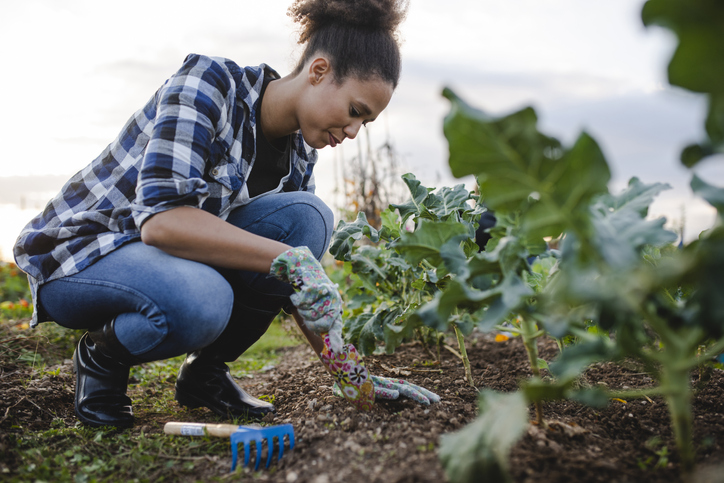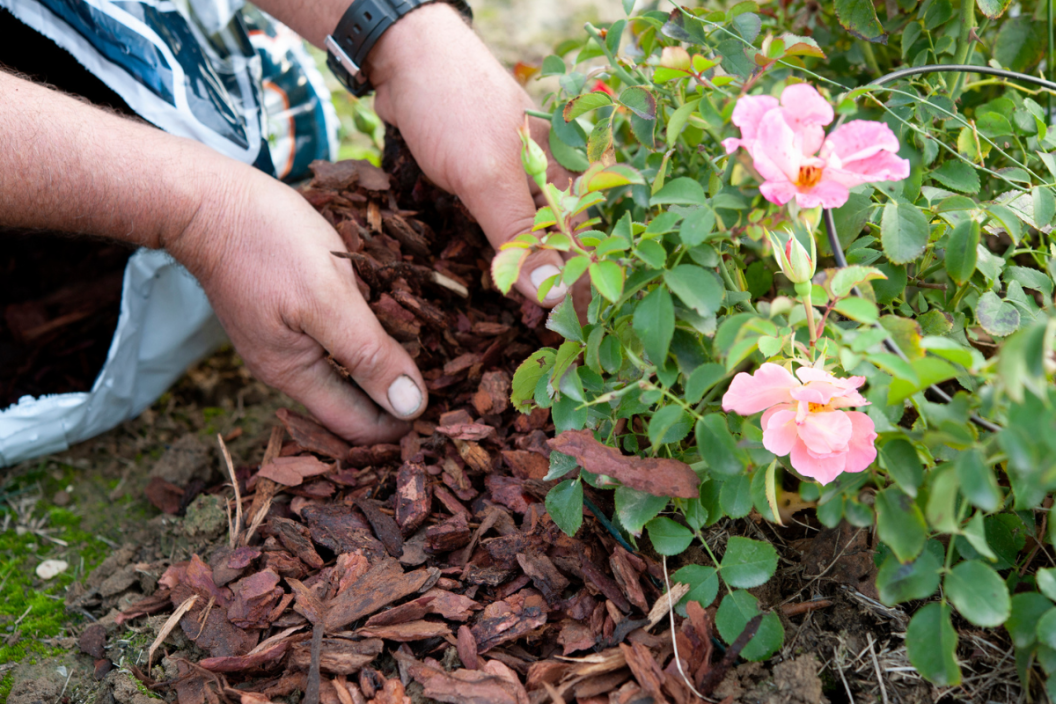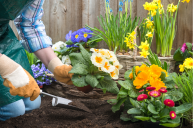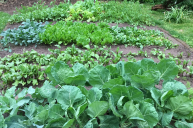Gardening and mental health have a special relationship, since gardening has so many health and wellness benefits. Not only will you get fresh flowers, succulents, herbs, fruits, and veggies, but also experience a number of benefits that can help you through mental health troubles.
Now, gardening is more accessible than ever; from small apartment balcony gardens to community gardens to a large garden patch in the country, there's so many ways to start gardening and see changes that can boost your mood, decrease anxiety, and help you feel connected to the planet.
Mindfulness

Getty Images
There's a reason therapists often tell their clients to ground themselves in the world when having a panic or anxiety attack. Connecting to the physical world is important, especially when your thoughts are racing and your heart is pounding. Focusing on the five senses and your presence is a form of mindfulness that can calm your nervous system and help you relax.
Gardening can be a form of mindfulness, too, helping you feel present in the current moment. In fact, gardening can be a great at-home ritual to help with many aspects of mental health.
One of the best benefits of gardening is being present in a tactile world. Often when struggling with mental health, it's easy to feel disconnected from your body and the world around you. Just like the five senses activity mentioned above, gardening makes you focus on the actions of planting, weeding, watering, and other nurturing activities for plants. Try gardening without headphones or music to truly be present as you cultivate your garden for mental health.
Exercise
It's long been said that exercise can help mental health, though for many exercising is the hardest thing to do when really anxious or suffering from a hard wave of depression. While it may not seem like it, gardening is a form of exercise and requires activating different muscle groups.
Even a balcony with a few planters can be hard work. From start to finish, gardening is active. When struggling with mental health, gardening is a way to trick your brain into exercising, especially because most of the activities are not normal "exercises." You might be carrying (or carting) soil to plant seeds, spending hours weeding, or harvesting your veggies, all of which get you moving. When you exercise, your brain releases endorphins, leading to a better mood.
Also, with mental health struggles, it's important to find a way to get up and out of bed, which is a huge step in finding a way out of the fog.
Be in Nature

Getty Images
Even if your garden is a small planter filled with herbs on a windowsill, it's still nature—and a connection to nature. During the COVID-19 pandemic (and before) views of greenspace were related to increase in happiness.
With gardening, you're bringing nature to you, wherever you are. Especially for people who live in urban areas with little to no access to green spaces, a small garden can make a huge difference in mental health, especially as we still deal with some COVID-19 caution.
If you're struggling and need a low commitment garden that would still help your mental health, try something small and easy, like a succulent garden box or low maintenance indoor plants like pothos, snake plants, and philodendrons. Cultivate an indoor garden that brings the benefits of natural spaces into your home. Find a space for your garden where you can see it throughout the day, boosting your mood whenever you look!
Eat Fresh Food
With mental health struggles, it's so easy to just order DoorDash or pick up fast food on the way home from work. Many of these greasy, salty, and fatty foods can make a person feel like sludge. If you decide to grow your own herbs, fruits, and veggies, then you can harvest and enjoy delicious fresh foods.
Eating homegrown food can make a huge difference in mental health. Especially in women, eating fresh, healthy food can improve mental health. When you nourish your body with good foods, you're likely to feel more energized and break out of the hard-to-break cycle that mental struggles can cause. Make sure to grow some things you love and can eat off the vine, like cherry tomatoes or strawberries.
Get Ready to Garden!

Getty Images
When you are having a mental health spiral, one of the hardest things can be just getting started. If you're ready to begin, talk to some trusted friends or family and see if they can help you prepare gardening materials and start planting.
Not only will gardening with friends and family make the process easier, they will also be able to provide you with some much-needed love and community. Mental health struggles can feel really isolating, so it's important to take small steps toward feeling better—just like spending an afternoon gardening with those closest to you.
READ MORE: 12 Small Flowers to Add to Your Springtime Garden




